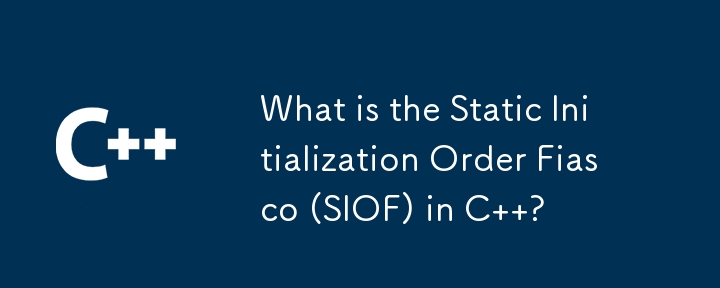Home >Backend Development >C++ >What is the Static Initialization Order Fiasco (SIOF) in C ?
What is the Static Initialization Order Fiasco (SIOF) in C ?
- Mary-Kate OlsenOriginal
- 2024-12-30 20:05:091038browse

Static Initialization Order Fiasco
The "static initialization order fiasco" (SIOF) is a potential issue in C that can arise when multiple translation units (e.g., .cpp files) contain statically initialized variables that depend on each other.
Consider the following example:
// file1.cpp extern int y; int x = y + 1; // file2.cpp extern int x; int y = x + 1;
When compiling this code, the following steps will occur:
-
File1.cpp:
- The compiler encounters y and declares it as an external variable (without allocating storage).
- It allocates storage for x but does not initialize it.
-
File2.cpp:
- The compiler encounters x and declares it as an external variable (without allocating storage).
- It allocates storage for y but does not initialize it.
During linking, the order in which the object files are initialized is significant. If file2.o is initialized before file1.o, the following will happen:
- x will be initialized to 0 by default initialization.
- y will be initialized to x 1, which evaluates to 1.
On the other hand, if file1.o is initialized before file2.o, the same values will be set for x and y. The order in which the object files are initialized is therefore crucial for the correct execution of the program.
The above is the detailed content of What is the Static Initialization Order Fiasco (SIOF) in C ?. For more information, please follow other related articles on the PHP Chinese website!
Related articles
See more- C++ compilation error: A header file is referenced multiple times, how to solve it?
- C++ compilation error: wrong function parameters, how to fix it?
- C++ error: The constructor must be declared in the public area, how to deal with it?
- Process management and thread synchronization in C++
- How to deal with data splitting problems in C++ development

